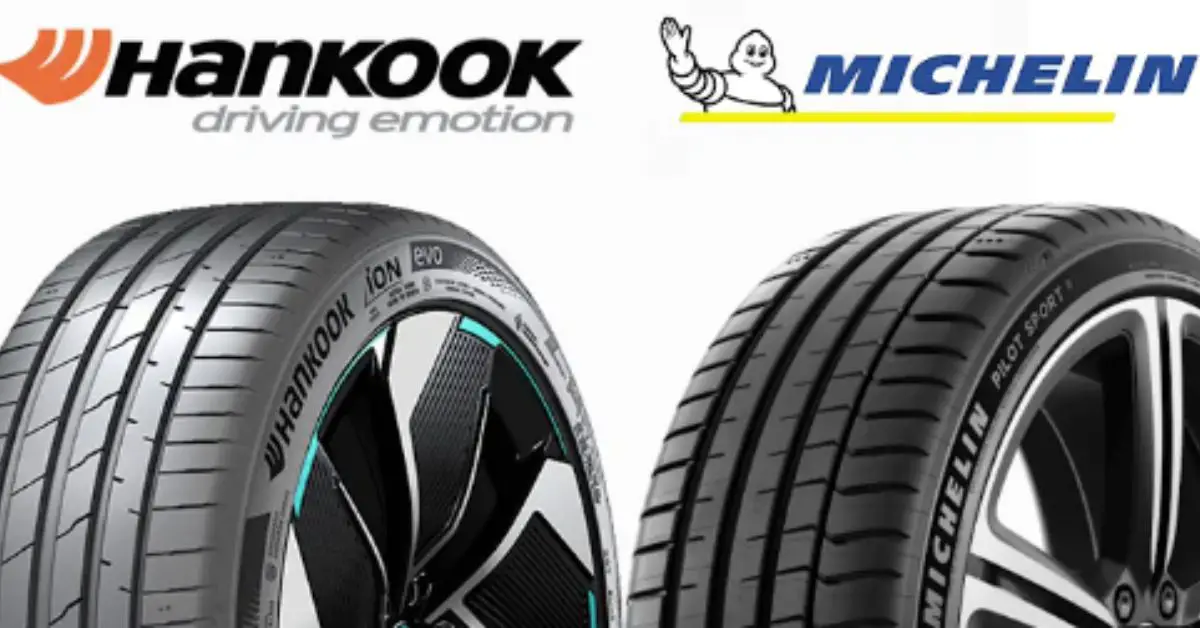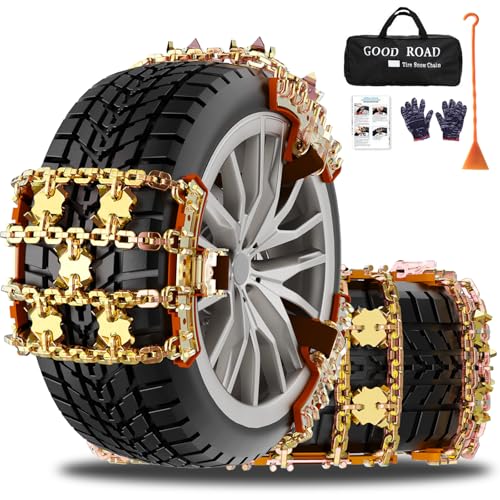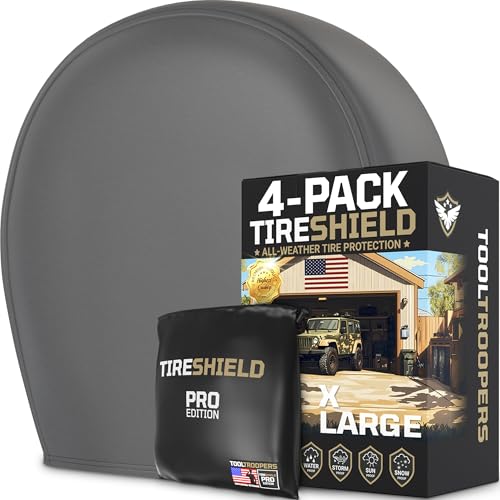When it comes to choosing the right tires for your vehicle, the decision often boils down to a few key players in the industry. Hankook and Michelin are two brands that frequently top the list for their performance, durability, and innovation. But how do you decide which one is the best fit for your needs?
In this article, you’ll discover a detailed comparison between Hankook and Michelin tires. We’ll dive into aspects like tread life, ride comfort, and cost-effectiveness to help you make an informed choice. Whether you’re a daily commuter or an off-road enthusiast, understanding the strengths and weaknesses of each brand can make all the difference in your driving experience.
Comparison of Hankook and Michelin Tires

Comparing Hankook and Michelin tires reveals key differences in performance, durability, and value. Evaluating these aspects helps in making an informed choice.
Overview of Hankook Tires
Hankook offers a range of tires known for their cost-effectiveness and innovative technology. The brand emphasizes:
- Durability: Hankook uses advanced rubber compounds to enhance tread life.
- Performance: Tires cater to various driving conditions, including wet and dry surfaces.
- Comfort: Features like noise reduction technology improve ride quality.
Examples include the Ventus V12 evo2 and the Kinergy GT, both acclaimed for their balance of performance and price.
Overview of Michelin Tires
Michelin, a premium tire brand, focuses on superior performance, longevity, and safety. Key attributes include:
- Tread Life: Michelin tires typically last longer due to high-quality materials.
- Ride Quality: Patented technology ensures a smooth and quiet ride.
- Fuel Efficiency: Reduced rolling resistance aids in better fuel economy.
Examples such as the Michelin Pilot Sport 4S and the Defender T+H demonstrate their commitment to excellence across various driving conditions.
Performance Evaluation

In evaluating tire performance, Hankook and Michelin exhibit notable differences in key areas like weather adaptability and durability.
Weather Adaptability
Hankook tires excel in varying weather conditions. They deliver solid performance in both wet and dry scenarios. For example, the Ventus V12 evo2 ensures reliable wet traction, while the Kinergy GT offers stable dry handling. These tires maintain grip, reducing hydroplaning risks during rain.
Michelin, as a premium brand, emphasizes superior weather adaptability. The Pilot Sport 4S performs exceptionally in dry conditions, providing precise steering and control. The Defender T+H, with advanced silica compounds, excels in wet conditions, offering enhanced traction and shorter braking distances. Michelin tires adapt well to seasonal changes, maintaining performance throughout the year.
Durability and Longevity
Hankook tires prioritize durability. They integrate advanced technologies like robust tread compounds and reinforced sidewalls. The Ventus S1 Noble2, for instance, features an asymmetric tread pattern that evenly distributes wear, extending tread life. Hankook tires handle daily driving demands while preserving treads longer.
Michelin stands out for tire longevity. Their designs focus on extended tread life, beneficial for long-term use. The Defender T+H, with its IntelliSipe technology, optimizes tread block stability, enhancing wear resistance. Michelin tires often come with longer mileage warranties, reflecting their commitment to durability and customer value.
In comparing Hankook and Michelin, you find that both brands excel in distinct performance areas. Hankook offers strong weather adaptability and durability, while Michelin provides superior longevity and advanced weather performance.
Price Comparison

Comparing the prices of Hankook and Michelin tires arms you with information to make an informed decision about which brand aligns with your budget and needs. Both Hankook and Michelin offer a wide range of tire models with varying price points.
Price Range of Hankook Tires
Hankook tires typically fall in the mid-range price category. You can expect to pay between $70 and $150 per tire for most passenger cars and SUVs. High-performance models, like the Ventus V12 evo2, may cost more, reaching up to $200. Hankook provides a cost-effective solution without compromising on technology and performance, making it an attractive option for budget-conscious consumers.
Price Range of Michelin Tires
Michelin tires, known for their premium quality and longevity, generally come at a higher price point. Most Michelin tires for passenger cars and SUVs range from $100 to $300 per tire. High-performance and specialized models, like the Michelin Pilot Sport 4S, can go beyond $300. While more expensive, Michelin offers superior durability, safety features, and performance, justifying the higher initial investment for long-term benefits.
Customer Reviews and Feedback

Customer reviews provide valuable insights into the real-world performance of Hankook and Michelin tires. Let’s dive into what users say about these two brands.
Satisfaction with Hankook Tires
Many customers appreciate Hankook tires for their affordability and performance. Users often highlight the following:
- Value for Money: Reviews frequently mention Hankook tires’ cost-effectiveness. For many, they deliver good performance without breaking the bank.
- All-Weather Performance: Customers praise models like the Ventus V12 evo2 for their grip and handling in both wet and dry conditions.
- Quiet and Comfortable Ride: Feedback often includes positive remarks about the quietness and comfort of Hankook tires, especially models like the Kinergy GT.
However, some users note that while Hankook tires perform well, they might not last as long as premium brands.
Satisfaction with Michelin Tires
Michelin tires receive high marks for their premium quality and longevity. Users typically emphasize:
- Superior Performance: Reviews for models like the Michelin Pilot Sport 4S often mention exceptional handling and responsiveness.
- Long Lifespan: Many customers report that Michelin tires outlast other brands, which justifies the higher price.
- Safety Features: Users frequently appreciate the safety and reliability of Michelin tires, especially in adverse weather conditions.
While Michelin tires are more expensive, customers often feel that the enhanced durability and performance make them a worthwhile investment.
Conclusion
Choosing between Hankook and Michelin tires ultimately depends on your driving needs and budget. If you’re looking for a cost-effective option with decent performance, Hankook offers great value. However, if you prioritize longevity, superior performance, and safety, Michelin stands out as the better investment. Consider what matters most to you and make an informed decision based on your specific requirements.
Related Posts:
- Yokohama vs Hankook Tires: Performance, Durability, and Pricing Compared
- Yokohama vs Goodyear Tires: Performance, Durability, and Eco-Friendliness Compared
- Yokohama vs Bridgestone: Which All-Terrain Tire Reigns Supreme?
- Nitto vs Michelin Tires: Which Brand is Best for Your Driving Needs?
- Falken vs Michelin Tires: Which Brand Offers Better Performance and Value for Money?
- BFGoodrich vs Michelin: Which Tire Brand is Best for Your Vehicle?
- Goodyear vs Michelin: Which Tire Brand is Best for Your Vehicle?
- Michelin vs Pirelli Tires: Which Brand is Best for Your Car?
- Firestone vs Michelin Tires: A Detailed Comparison of Performance and Value
- Toyo vs Michelin Tires: Which Brand Offers the Best Performance and Value?
- Hankook vs Michelin Tires: Which Brand Offers the Best Performance and Value?
- Goodyear vs Bridgestone Tires: In-Depth Comparison of Performance, Durability, and Customer Reviews
- Continental vs Pirelli Tires: A Comprehensive Comparison of Performance and Value
- Continental vs Bridgestone Tires: Which Brand Offers Better Performance and Durability?






















